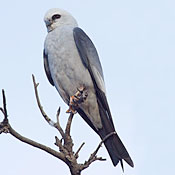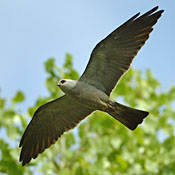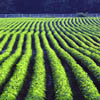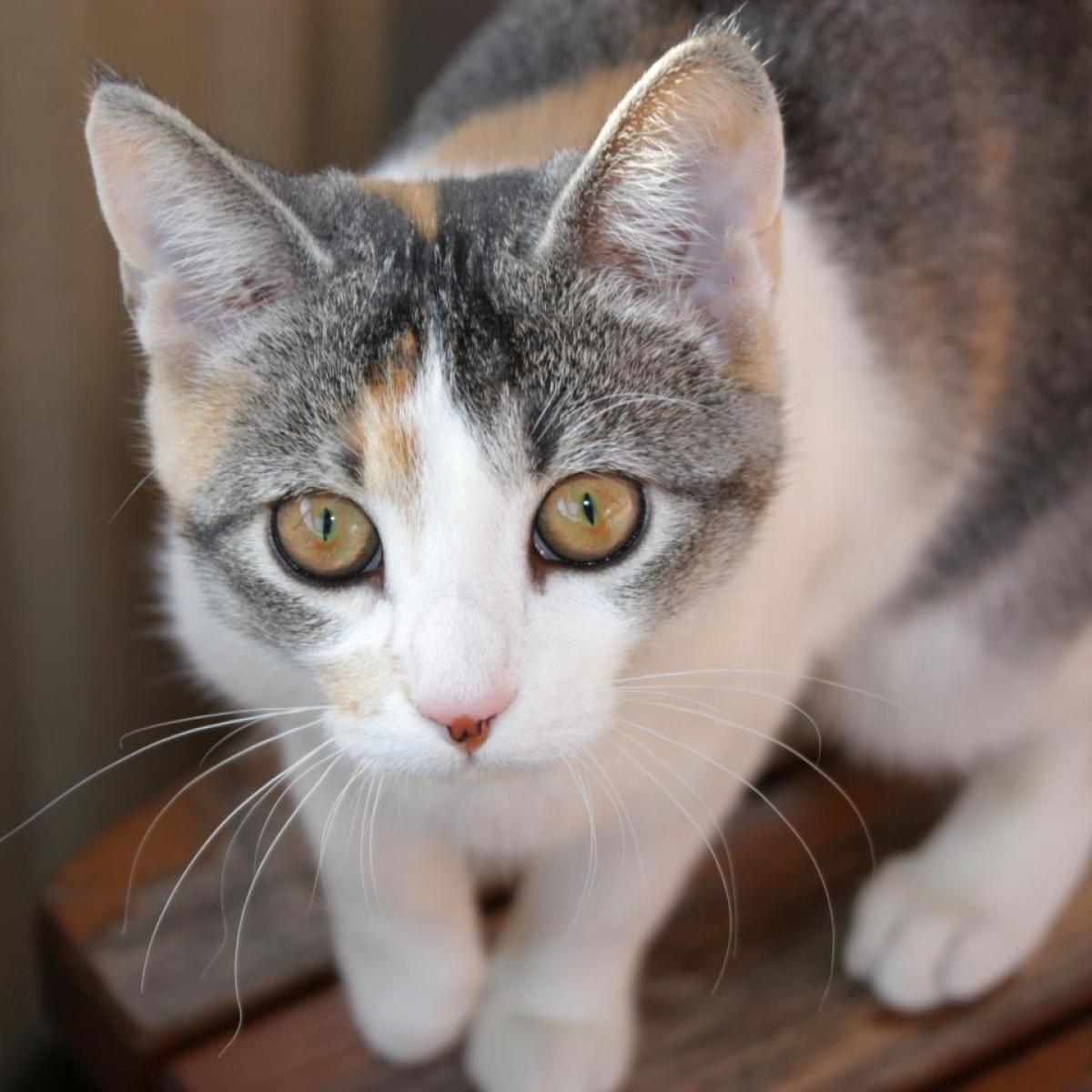Mississippi Kite
Ictinia mississippiensis

Hawk Like

Length: 15 in. (37 cm )
This kite forms pairs on its wintering grounds in South America. When it arrives here in the Spring, nest building begins almost immediately, and several pairs tend to nest near each other. The bulky platform nest is placed high in a tree branch close to the trunk. It is made of small sticks and lined with leaves. The kite feeds large by capturing insects in the air, but it will also go after bats, frogs and lizards. It is most often seen soaring high over riparian forest and nearby fields.
The four-digit banding code is MIKI.
Bibliographic details:
- Article: Mississippi Kite
- Author(s): Dr. Biology
- Publisher: Arizona State University School of Life Sciences Ask A Biologist
- Site name: ASU - Ask A Biologist
- Date published: 13 Jul, 2017
- Date accessed: 7 August, 2025
- Link: https://askabiologist.asu.edu/activities/bird/mississippi-kite
APA Style
Dr. Biology. (Thu, 07/13/2017 - 15:38). Mississippi Kite. ASU - Ask A Biologist. Retrieved from https://askabiologist.asu.edu/activities/bird/mississippi-kite
Chicago Manual of Style
Dr. Biology. "Mississippi Kite". ASU - Ask A Biologist. 13 Jul 2017. https://askabiologist.asu.edu/activities/bird/mississippi-kite
MLA 2017 Style
Dr. Biology. "Mississippi Kite". ASU - Ask A Biologist. 13 Jul 2017. ASU - Ask A Biologist, Web. https://askabiologist.asu.edu/activities/bird/mississippi-kite
Be Part of
Ask A Biologist
By volunteering, or simply sending us feedback on the site. Scientists, teachers, writers, illustrators, and translators are all important to the program. If you are interested in helping with the website we have a Volunteers page to get the process started.







